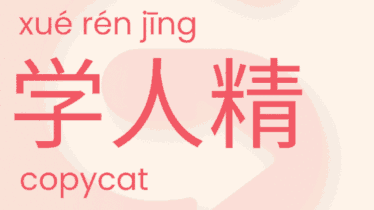วลีภาษาจีนประจําวันที่มีประโยชน์
There are many useful Chinese daily phrases that elementary and intermediate Chinese learners don’t yet know. For instance, the HSK books won’t teach you how to call an ambulance or the police — or how to ask for tissues in a restaurant, or to ask for the WIFI password.
Here we list these extracurricular useful Chinese daily phrases for you.
How to strike up a conversation
Excuse me
You can trouble people with ‘请问一下qǐngwèn yíxià’, or even more formal with ‘劳驾láojià’.
Hey handsome
A pretty normal way to get someone’s attention is to say ‘hey handsome’: ‘美女měinǚ’ for females, ‘帅哥shuàigē’ for guys. It’s not really flirting, but do not use this in formal settings. This greeting works well for security guards, delivery guys, waiters, etcetera. Do not call your Chinese teacher handsome!
Hey schoolmate
If you are walking near a university or meet a student who’s carrying a schoolbag, you can address her or him with ‘同学tóngxué’.
Hey!
This “word” (or rather sound) is unlikely to show up in a Chinese language textbook, and yet it’s the most common way to address people. Again, pretty informal, but suitable when you don’t know somebody’s name: “嗯Ń!”
Need more inspiration? Check out our article with greetings in Chinese.
Phrases to ask for options or feedback
What do you think?
Some Chinese learners still struggle or don’t know for sure how to ask what people think. The most common one is probably: 你觉得怎么样/如何?
Nǐ juéde zěnme yàng/rúhé?’. ‘如何rúhé’ just means ‘怎么样zěnme yàng’. Even though it’s more formal, it’s commonly used in China.
Another option is ‘你觉得呢?Nǐ juéde ne?’. Because it uses 呢ne, this is more often used as follow-up.
How do you think?
‘你怎么想?Nǐ zěnme xiǎng?’ actually means ‘how do you think?’ so people could literally answer: ‘with my brains’, but this phrase is a common daily phrase in Mandarin, that just means ‘What do you think?’.
Speak out your views/thoughts
On some occasions, you can ask people in Chinese: ‘说说你的看法/想法shuōshuō nǐde kànfǎ/xiǎngfǎ’.
Useful phrases for online
What’s the wifi password here?
‘wifi密码是多少?wifi mìmǎ shì duōshǎo?’, especially when you want to use the wifi in a coffee or co-working place.
Can you send me your Zoom URL?
‘发我一下你的Zoom链接fā wǒ yíxià nǐ de Zoom liànjiē’. And yes, Chinese people do use Zoom (GoEast uses Zoom for online Chinese classes.)
What’s your email?:
‘你的邮箱是什么?nǐde yóuxiāng shì shénme?’ Not that this is not a direct translation.
Do you use WeChat?
Of course nearly everyone in China uses WeChat, but outside of China you may ask people if they use WeChat. Or this sentence is used as a polite way to ask someone’s WeChat in China: 你用微信吗?Nǐ yòng wēixìn ma?
Other phrases for online usage:
- Your connection isn’t so good: ‘你的网不太好nǐde wǎng bútài hǎo’
- My connection is a bit slow: 我的网速有点慢wǒde wǎngsù yǒudiǎn màn
- Connection stuck: 网卡了/断了wǎng kǎ le/duàn le
- I cannot hear your voice: 听不到你的声音tīngbúdào nǐde shēngyīn?
- Can you see me?: ‘可以看到我吗?kěyǐ kàndào wǒ ma?’
- Can you hear me?: ‘可以听到我吗?kěyǐ tīngdào wǒ ma?’
Emergencies in Mandarin
Many Chinese courses don’t prepare Chinese learners for these types of situations. Of course we hope you don’t need to use these phrases, but
- Call the police!: 快报警!kuài bàojǐng!
- Call the fire bridage!: 叫火警!jiào huǒjǐng!
- Call an ambulance!: 叫救护车!Jiào jiùhù chē!
- Help!: 救命!Jiùmìng! (In emergencies, do not use ‘请帮助Qǐng bāngzhù‘
- Catch the thief!: 抓小偷!zhuā xiǎotōu!
Other useful Chinese phrases
Going to the toilet
- Where is the toilet?: 洗手间在哪?Xǐshǒujiān zài nǎ?
- I want to go to the toilet: 我想上个厕所wǒ xiǎng shàngge cèsuǒ
- I want to go to the toilet (but more subtle): 我要方便Wǒ yào fāngbiàn
Asking for paper or tissues
There are different tissues for different usages, and these also aren’t covered by conventional HSK books.
- Do you have toilet paper?: 你有卫生纸吗? Nǐ yǒu wèishēngzhǐ ma?
- Do you have napkins/tissues? (for during dinner: 你有餐巾纸吗? Nǐ yǒu cānjīnzhǐ ma?
- Do you have a note to write on?: 你有草稿纸吗? Nǐ yǒu cǎogǎo ma?
Talking about good or bad luck
- I have such bad luck: 我真倒霉Wǒ zhēn dǎoméi
- I have terrible luck: 我运气太差了Wǒ yùnqì tài chà le
- Thank you, God! (Figuratively. This phrase is also used by non-religious people): 老天保佑lǎotiān bǎoyòu
- Today my luck is so good: 今天运气真好jīntiān yùnqi zhēnhǎo
Dialects
You’ll find these words put into sentences in daily Chinese conversations. They’re informal (but not impolite) ways to sound very fluent in spoken Chinese (so you won’t find these in any literature).
- 啥shá, this just means ‘什么Shénme’, so you can say: “啥事? Shà shì?” (What’s the matter?) or “你想吃啥Nǐ xiǎng chī shà?” (What do you want to eat?)
- ‘嘛má’ also means ‘什么Shénme’ but the usage is slightly different. Very common is “你干嘛?Nǐ gàn ma?“ (What are you doing?). Depending on the intonation this is meant as offensive or just curious.
- 咋zǎ means ‘怎么Zěnme’, such as ‘你 咋 又 迟到 了? Nǐ zǎ yòu chídào le?’ (How (is it possible that) you are late again?)
Video about useful daily phrases in Mandarin Chinese
As hosted by our Eva老师, from our YouTube Channel: GoEast Mandarin



